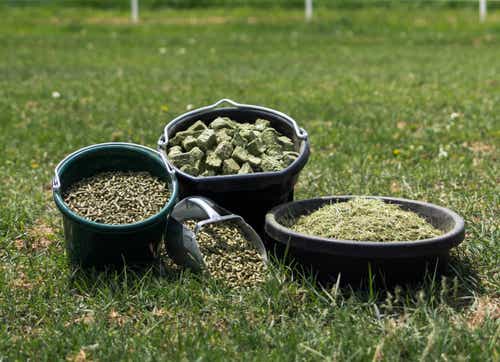
Nutritional Disorders in Goats: What to Watch for and How Forage-Based Feeding Helps Prevent Them
Goat ownership continues to grow across the United States, from backyard herds and companion animals to dairy goats and small-scale livestock operations. While goats are adaptable and efficient foragers, they are also highly sensitive to dietary imbalances. Many of the most common health issues seen in goats stem not from disease, but from nutrition-related challenges that can often be prevented...

How to Extend Your Hay Supply When Hay or Pasture Is Limited
Hay shortages tend to happen more often than many horse owners expect. Forage production depends heavily on weather and growing conditions, and factors like drought, wildfires, flooding, or extended winters can significantly limit what’s harvested and when it’s available. Add in transportation delays or regional supply disruptions, and even barns that plan ahead can find their hay supply running...

Healthy Horse Treats: How to Reward Your Horse Without Compromising Nutrition
Horse owners love to feed treats to their horses. Treats are a simple way to reward good behavior, reinforce training, strengthen the human–horse bond, or just say “thank you” to our equine partners who show up for us every day. From carrots pulled straight from the fridge to neatly packaged commercial treats, the options available today are broader than ever. Treats are technically still...

Laminitis in Horses: Symptoms, Causes, and Feeding Strategies to Support Hoof Health
Laminitis is one of the most serious and painful hoof conditions affecting horses. Whether you manage performance horses, easy keepers, or aging companions, understanding laminitis - and how nutrition and management play a role - is critical for prevention and long-term care. Education is one of the most powerful tools horse owners have. This guide breaks down what laminitis is, how to recognize...

Feeding Goats in Winter: Smart Forage & Nutrition Strategies for Cold Weather
When cold weather arrives and pastures fade, goats face new nutritional challenges. Shorter days, frozen ground, and lower temperatures mean less grazing time – and a greater need for energy, fiber, and warmth from their feed. Winter feeding isn’t just about keeping goats full. It’s about helping them stay healthy, maintain body condition, and generate the internal heat they need to thrive all...





